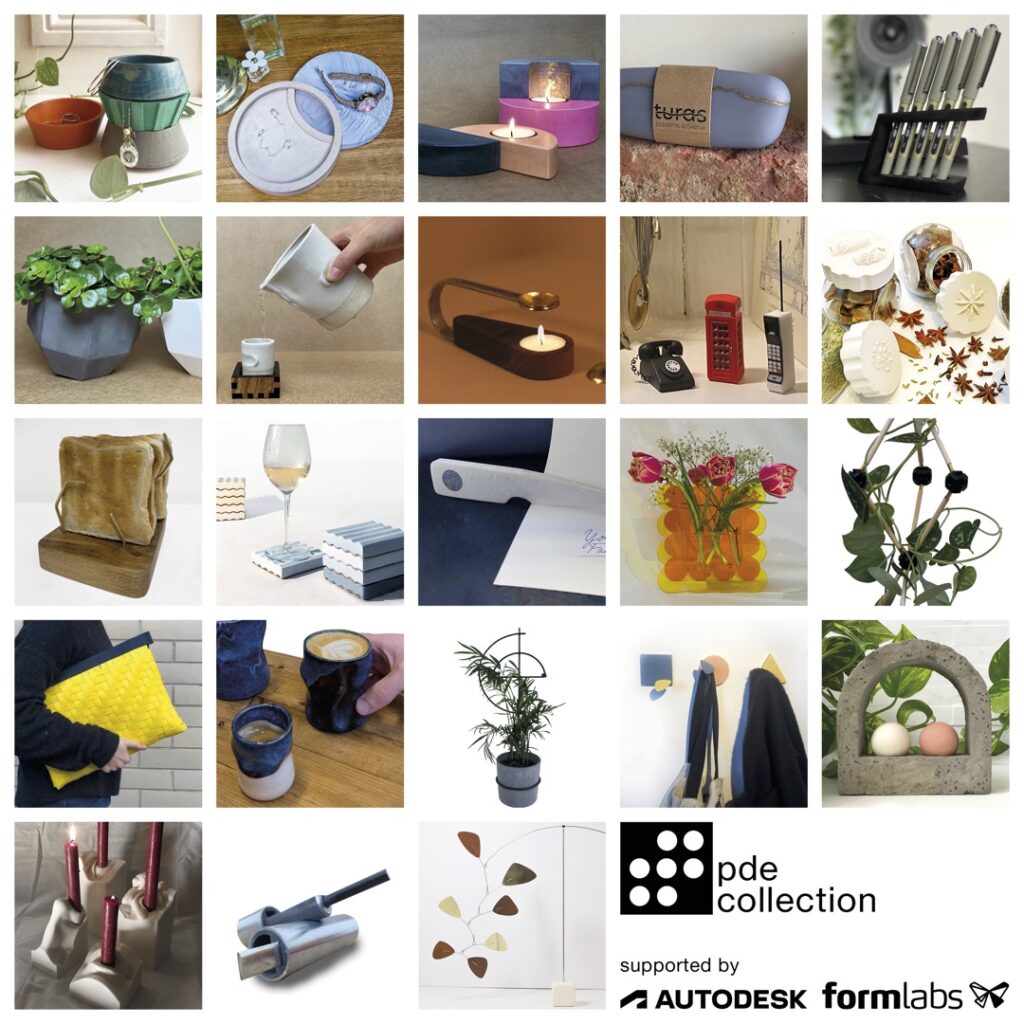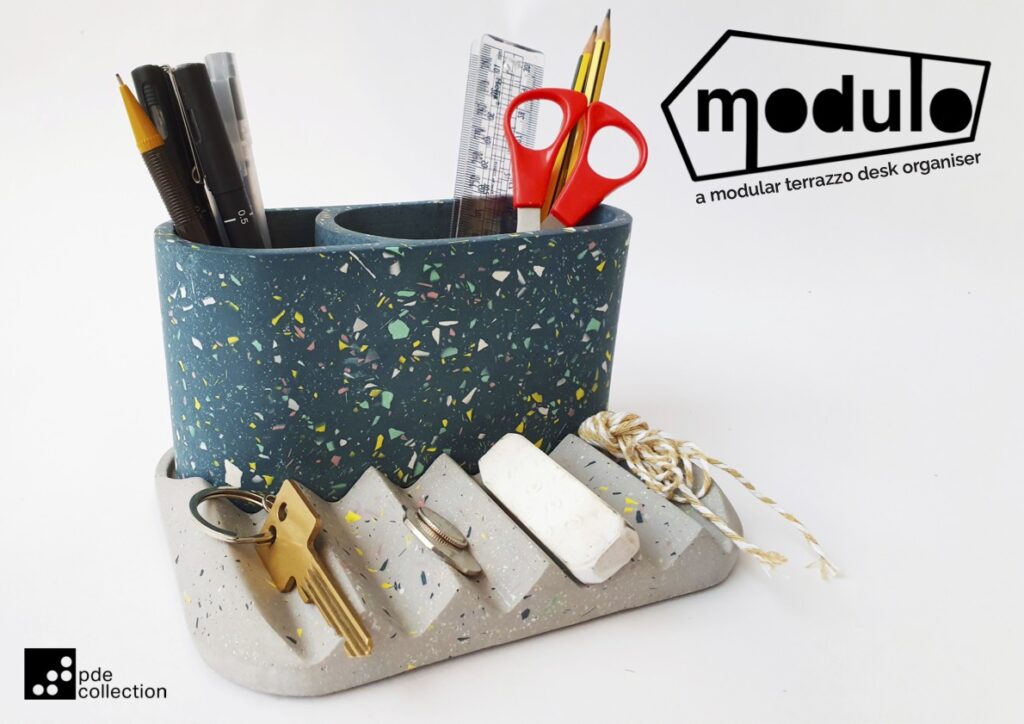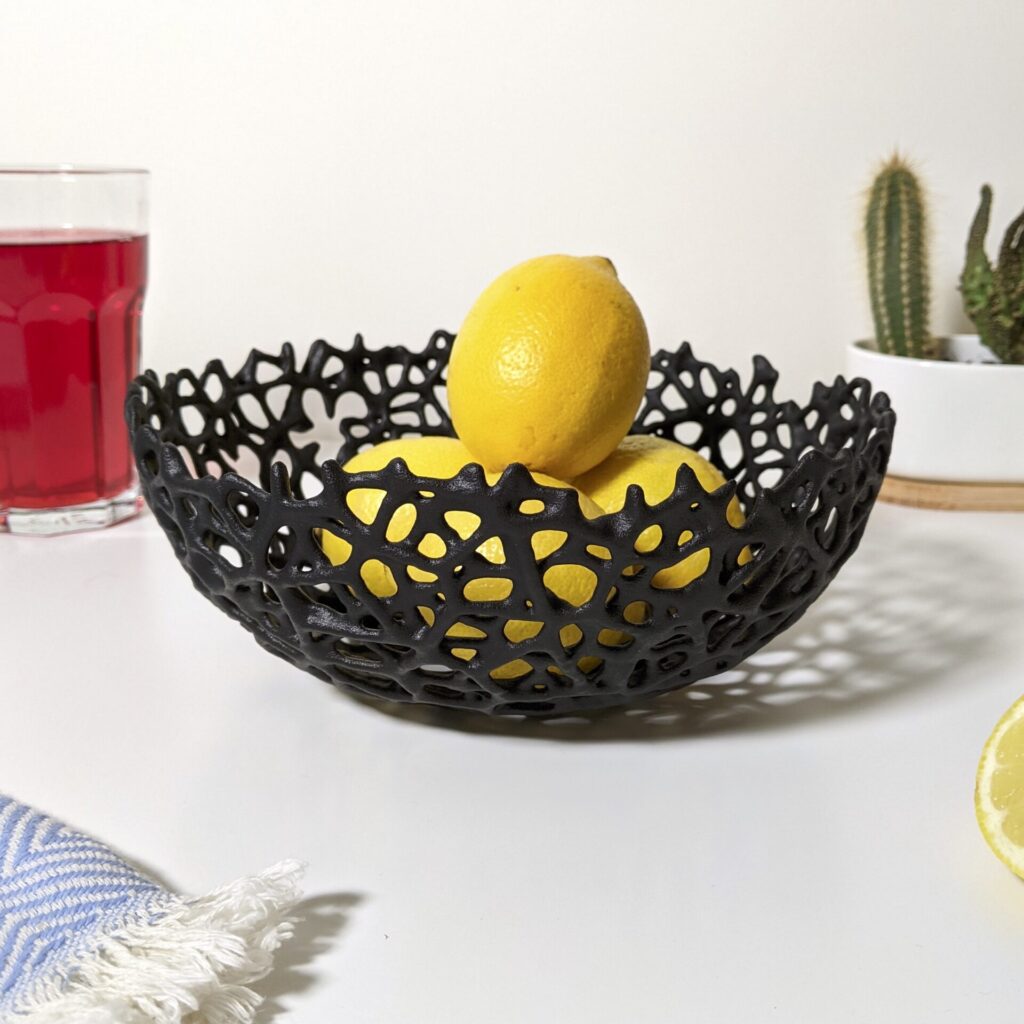
The Glasgow School of Art and the University of Glasgow are globally recognized for undergraduate and graduate programs focused on the art and technique of design engineering—and for pushing the boundaries of experiential education. Since 2015, students in the Master class of Product Design Engineering have participated in a semester-long project to design and make a batch of giftware products to be sold in retail shops throughout Glasgow. For the PDE Collection, students collaboratively create objects like geometric plant pots, Japanese-inspired sake sets, and modular candle holders, reimagining the art of product design engineering using a people-first mentality.
Retail therapy turned resume building
Craig Whittet, head of the Product Design Engineering department and his colleague Hugh Pizey spearheaded the product design engineering curriculum. Their goal was empowering students to develop design and manufacturing skills with a strong sense of the human experience at the center of learning. The class pushes the boundaries of traditional learning, offering both instruction for product design engineering and the opportunity to put these skills into exploratory practice.

This helps students gain applicable knowledge while learning resilience, confidence, and creative thinking within a product design engineering context. Students have the chance to attend industry events, such as London Design Week, to gain inspiration for their own designs. Participants in the PDE collection project can showcase their designs in various retail settings, including art centers, luxury retail malls, and pop-up stores in Glasgow. Most recently, student designs using 3D printing technology are featured for sale through their e-retail shop. The project’s skill-building, resume-building, and community-building components have helped the product design engineering class take off.
The PDE collection is an exercise in output, with students using Autodesk Fusion 360® to design, build, test, and sell products. The unique pedagogical process makes this project so important for PDE graduates, some of whom go on to work for reputable brands globally. The collection requires students to combine digitization with arts & crafts—an unusual design hybrid joining two very different worlds. Using Autodesk Fusion 360, students embrace design engineering principles in the software and a hands-on, DIY mindset of making. The PDE collection thrived during the pandemic due to the cloud-based nature of the software, allowing students to work collaboratively from various locations using a range of devices.
Skill-building for the future

With experiential projects like the PDE collection, The Glasgow School of Art is graduating highly employable student-makers. Developing a strong portfolio to showcase industry-relevant skills to future employers, such projects can be a platform for their careers. Students can show what they designed, how they designed and manufactured it, and how they sold it—ultimately demonstrating a fluency in the design, manufacturing, legal, and finance components of a product from start to finish.
“The PDE Collection is undoubtedly a highlight of the PDE calendar,” says Whittet. “The quality of the artifacts improves year upon year. Our collaborations with Autodesk and leading manufacturers of 3D printing equipment have enabled students to explore and develop geometries and experiences that would otherwise be impossible to manufacture at a small scale. The range of skills they have developed are of great value to industry and also for students to forge their own careers by developing ideas generated during their studies. This project provides an insight into what’s required to develop a concept to product that is ready for market.”